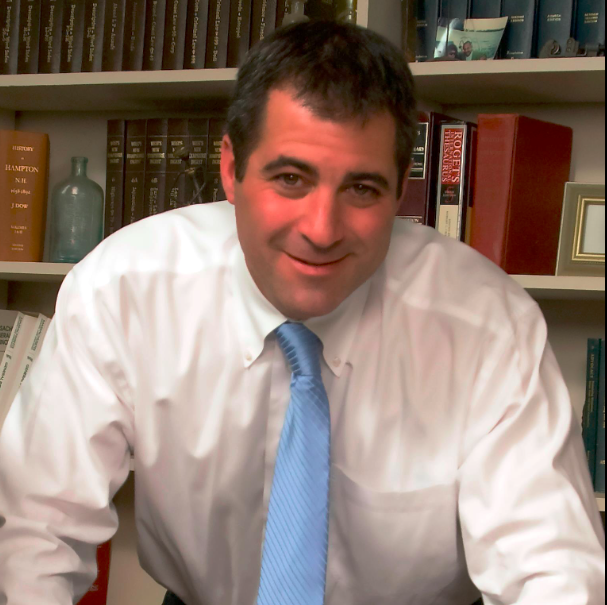EXCLUSIVE: Emails Show Liot Hill Used Office to Help Dem Law Firm Sue NH Over Voter ID

Calling herself “the top Dem” in state government, Executive Councilor Karen Liot Hill (D–Lebanon) has been using her official position to recruit plaintiffs for a potential lawsuit against New Hampshire’s newly enacted voter ID law, and directing them to a high-profile Democratic law firm in Washington, D.C.
In emails sent from her official Executive Council account and obtained by NHJournal, Liot Hill refers potential plaintiffs to the Elias Law Firm. That’s the same Marc Elias who helped Hillary Clinton fund the research used in the now-debunked dossier behind the Russia collusion hoax.
While Liot Hill’s actions may or may not be illegal, critics point out that she’s trying to help a Washington, D.C., law firm sue the state of New Hampshire—which could cost the state hundreds of thousands of dollars—while serving as one of New Hampshire’s fiscal watchdogs.
“This is astonishingly bad judgment from a member of what effectively serves as our state’s board of directors, ignoring her fiduciary duty to our citizens and taxpayers in favor of shameless partisan hackery,” a New Hampshire attorney who does business before the Executive Council told NHJournal on background. “Sad.”
The Elias Law Firm that Liot Hill is helping is notorious for its aggressive—and expensive—legal tactics on behalf of Democratic clients and causes, such as opposing voter ID requirements.
“I am writing to ask for your help,” Liot Hill wrote. “SB 287 was recently signed into law. This is a bill that will make it harder for people to vote in New Hampshire by forcing every absentee voter to provide a copy of an acceptable photo ID—or appear in person before a clerk or a notary—each time the voter requests an absentee ballot for any election.
“I am working with some folks who are trying to identify voters who will be impacted by SB 287, and I was thinking that this may affect older folks/mobility-challenged individuals,” she wrote to Chuck Saia, executive director of the Governor’s Commission on Disability.
“Would you be willing to have a call with Tina (copied on this email, contact information below) to talk further?” Liot Hill added.
“Tina” is Tina Meng Morrison, the Elias Law Firm attorney copied on each email. Morrison’s contact information appears immediately above Liot Hill’s official Executive Council email signature.
Other emails obtained by NHJournal had nearly identical messaging and were sent to:
-
Lisa Beaudoin, Strategies for Disability Equity
-
Donnalee Lozeau, Community Action Partnership of Hillsborough and Rockingham counties
-
Isadora Rodríguez Legendre, The Developmental Disabilities Council
-
Olivia Zink, Open Democracy
Unanswered in the emails: Liot Hill’s financial relationship with the law firm. Is the Executive Councilor being paid or receiving any remuneration for her work? Has the Democratic law firm donated to her campaign? Neither Liot Hill nor Meng Morrison would say.
In fact, Liot Hill declined to respond to any questions from NHJournal, which she described in her email to Meng Morrison as “a Republican online news source.”
“I’m the top Dem in state govt in NH, and they are always attacking me,” Liot Hill complained. “I’ve stopped responding to them. I am also interested to know who forwarded my email to them.”
Liot Hill sent NHJournal’s request for comment to the attorney, to which Meng Morrison replied, “Thanks for forwarding. If you could ignore this email for any comment, that would be much appreciated.”
If she is getting paid, Liot Hill’s email campaign is ethically murky. Elected officials in New Hampshire are governed by different sets of rules. Members of the executive branch, like Liot Hill, have fewer restrictions than state legislators.
But murky finances are part of Liot Hill’s history.
According to her campaign disclosures, the Lebanon Democrat has spent thousands in campaign cash on meals, clothes, and visits to salons during the 2024 race. Her campaign expenditures included a $190 ferry ride to the Hamptons and $181 to register her car, as well as repairs around her home.
This year, she has already been reimbursed for tens of thousands of dollars in travel and other costs, despite not facing the voters again until next year.
“It should come as no surprise that Karen Liot Hill is involved in another unethical scandal. She previously misused campaign dollars; now we come to learn that she’s electioneering with taxpayer dollars,” New Hampshire GOP Chair Jim MacEachern said. “It’s shameful that she is still in her position. Granite Staters deserve better.”
Elias Law Group founder Marc Elias is a heavy hitter in the Democratic Party. He was the DNC lawyer from 2009 through 2023 and served on Secretary of State Hillary Clinton’s presidential campaign. His firm represented the Democratic mail shop that sent illegal mailers into New Hampshire’s 2nd Congressional District’s GOP primary in 2022. The mail shop eventually agreed to resolve a New Hampshire Attorney General investigation with a three-year agreement that included payment of a $40,000 fine.
Elias told The New Yorker in 2021 that his firm “represents only clients who meet at least one of three criteria: they must be Democrats or an organization that helps Democrats win elections; they are bringing cases that challenge laws that restrict voting; or they are a progressive group that meets the values of our firm.”
Executive Councilors John Stephen and Dave Wheeler, both Republicans, attended an Americans for Prosperity – New Hampshire event Wednesday night discussing the role of Executive Councilors in state government. Neither would comment on their colleague’s actions, but Wheeler did acknowledge that if the state is forced to hire outside counsel to deal with an Elias lawsuit, that contract would come before Liot Hill and the Executive Council for approval.
“I don’t know any of the circumstances,” Stephen said of Liot Hill’s emails. “But I think the law is a great law, and I’m so proud that the legislature passed the law to show proof of identity and citizenship and residency in order to vote.”









